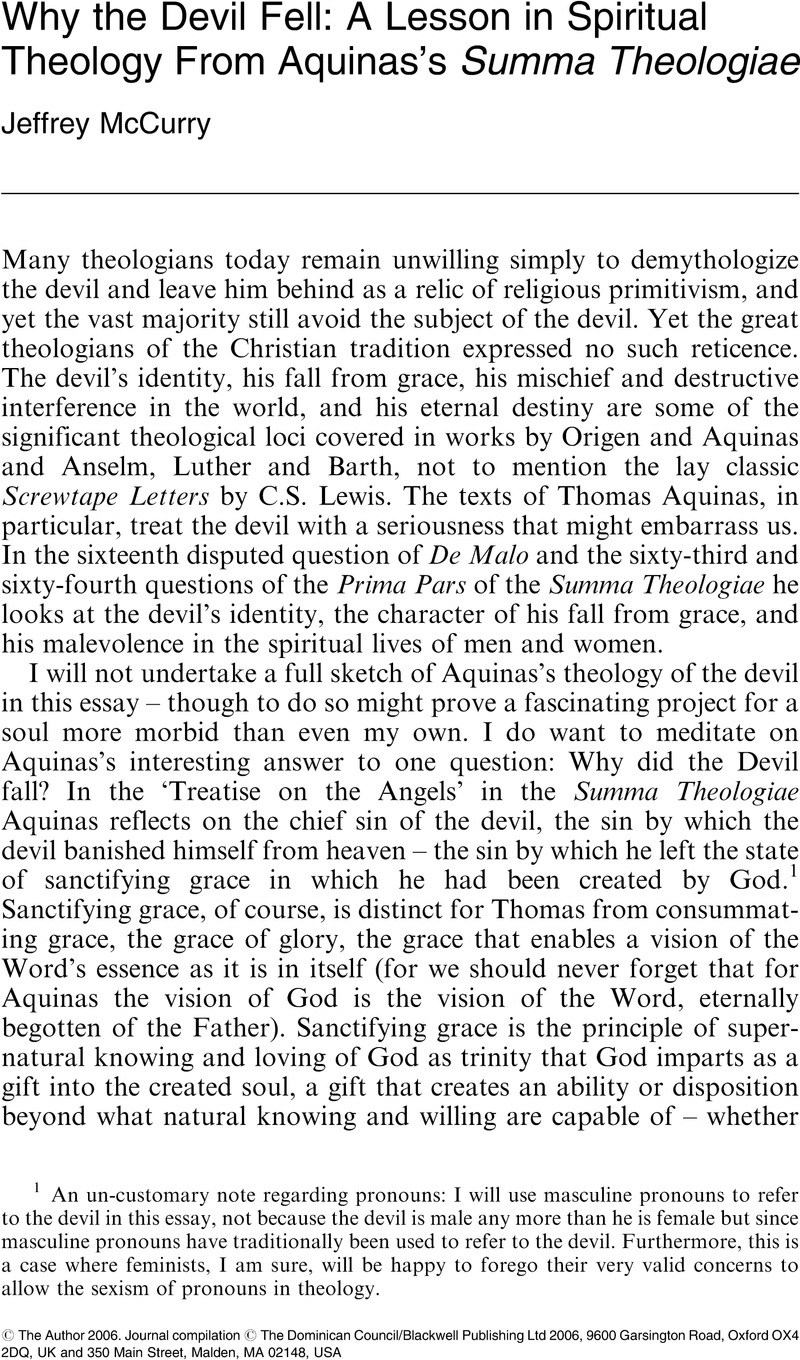Published online by Cambridge University Press: 01 January 2024

1 An un-customary note regarding pronouns: I will use masculine pronouns to refer to the devil in this essay, not because the devil is male any more than he is female but since masculine pronouns have traditionally been used to refer to the devil. Furthermore, this is a case where feminists, I am sure, will be happy to forego their very valid concerns to allow the sexism of pronouns in theology.
2 STh I.63.3. All citations of Aquinas in this essay will come from the five-volume, misnamed Summa Theologica(New York: Benziger Brothers, 1948) translated by the Dominicans of the English Province in the early twentieth-century.
3 STh I.62.1, corpus
4 STh I.62.1, corpus
5 STh I.62.1, ad 3
6 STh I.62.1, ad 3
7 STh I.62.2, corpus
8 STh I.62.2, corpus
9 STh I.62.2, corpus
10 STh I.62.2, ad 3
11 STh I.62.3, corpus
12 STh I.62.3, ad 2
13 This paragraph is indebted to Prof. Reinhard Hütter of Duke University.
14 On merit in Aquinas see the crucial work by Wawrykov, Joseph, God's Grace and Human Action: ‘Merit’ in the Theology of Thomas Aquinas(Notre Dame, IN: Notre Dame, 1995)Google Scholar.
15 STh I.62.4, ad 2
16 For the notion of the Christian life as a kind of relaxing, I am indebted to conversations with James Alison.
17 STh I.63.Prologue
18 STh I.63.2, corpus
19 STh I.62.3
20 STh I.63.3, corpus
21 STh I.63.3, corpus
22 STh I.63.3, corpus
23 STh I.63.3, corpus
24 STh I.63.3, corpus
25 James 1:17
26 Nor is this idea new to Aquinas. Here, as he often does, Aquinas stands in the great tradition of theology. After an initial draft of this essay was completed, Stanley Hauerwas brought to my attention that both Clement of Alexandria and Tertullian believed that the devil fell because of a lack of patience. For a discussion of patience in these two figures see Hauerwas, Stanley and Pinches, Charles, Christians Among the Virtues(Notre Dame, IN: Notre Dame, 1997)Google Scholar. Indeed one could chart this history of the theological explanations of the devil's fall – this might be a most interesting project.
27 As quoted in Wainwright's, Geoffrey Doxology: The Praise of God in Worship, Doctrine and Life(New York: Oxford, 1980), p. 34Google Scholar. I would like to thank my friend Rob Rexroat for sharing this quotation with me.
28 This essay is indebted to the notion of ‘taking time’ mentioned more than once in writings of Archbishop Rowan Williams. I also want to thank Rob Rexroat, Jennifer Peters, and Stanley Hauerwas for comments and encouragement in writing this essay. I would also like to say thank you to my mother, Diane, who helped clean up my style and typos!